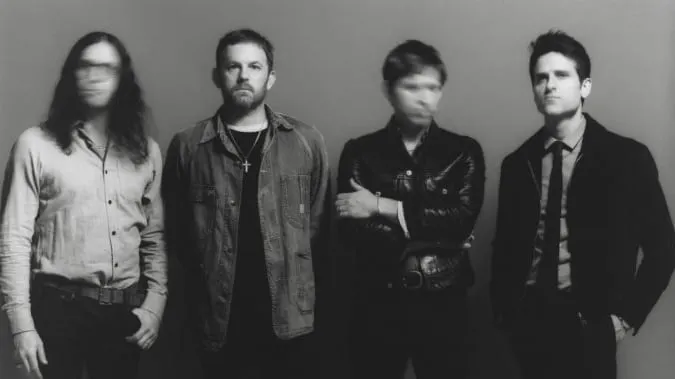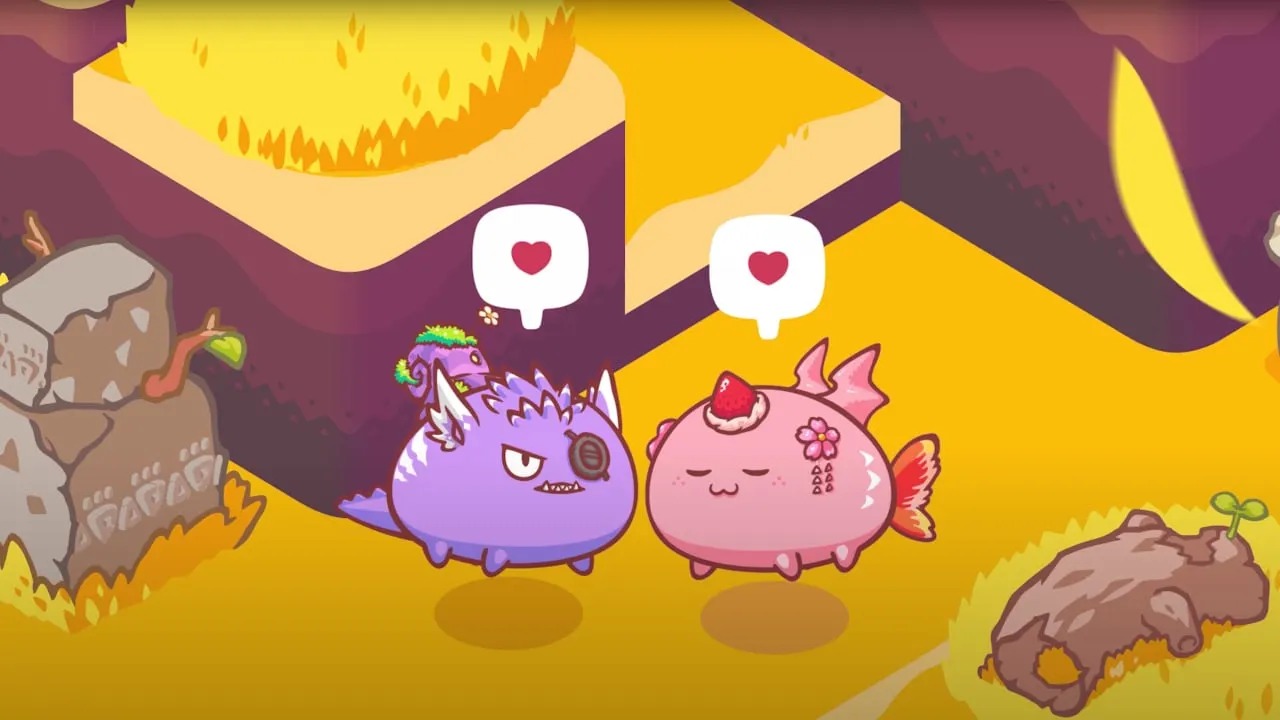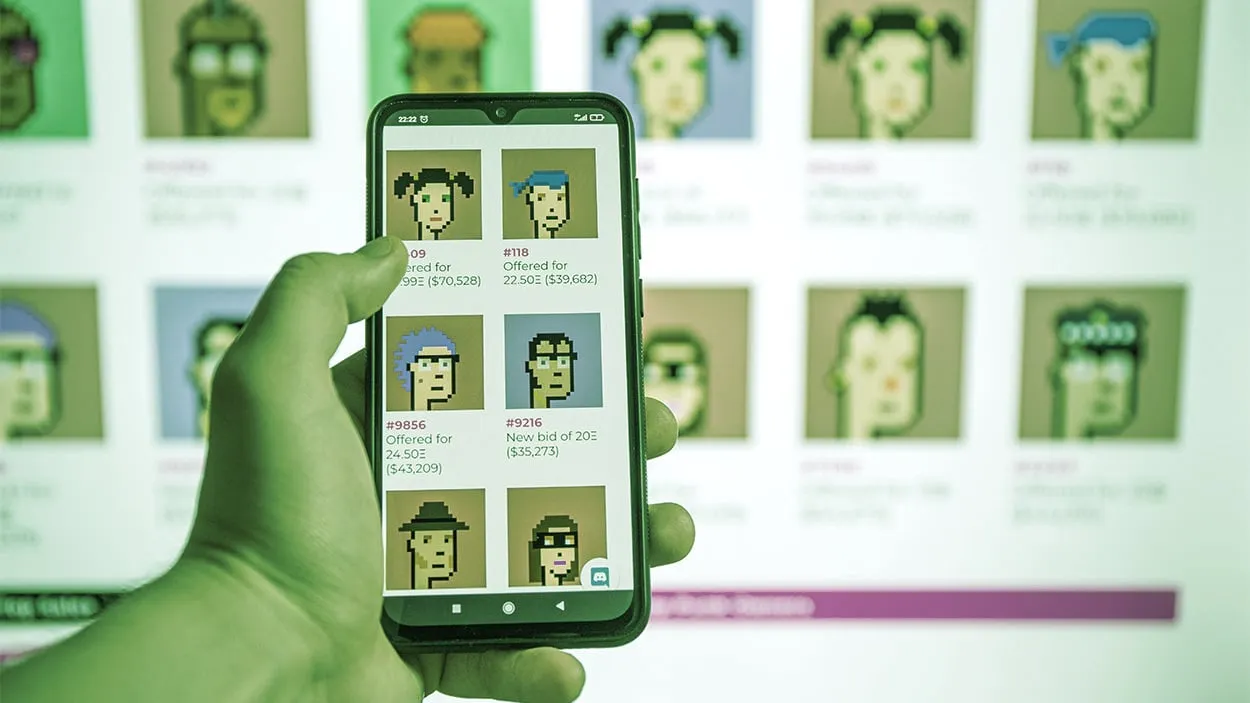In brief
- NFTs have transformed the art industry, but other industries could benefit from the technology too.
- Music and gaming are actively exploring using NFTs.
- But other things are beginning to be tokenized too.
The cryptocurrency press, and indeed the world’s biggest media companies have been racing to cover the NFT art craze that has captured the imagination of plaudits and critics alike.
In addition, a slew of celebrities and brands have lept into the space to try and cash in. The likes of Pizza Hut, Pringles, Taco Bell, and even toilet paper manufacturer Charmin have all announced their version of NFTs.
Elon Musk, Twitter founder Jack Dorsey, Cristiano Ronaldo, Lindsey Lohan, and NFL player Rob Gronkowski have all released their own versions of the digital collectibles.
In the past month alone, more than $240 million has been spent on pieces of digital art according to market tracker NonFungible.com. Established art-sellers Sotheby’s and Christie's have also got involved to help bring digital art to its wealthy clientele.
But while NFTs have become synonymous with art - the technology that makes them possible has the potential to change not just images, but any digital product.
What are NFTs?
NFTs, or non-fungible tokens are essentially digital deeds attached to the blockchain. When an NFT is created, a unique identifier, typically a string of numbers and letters records the creation date, and is added to a blockchain’s historical record.
It’s this information that makes each NFT unique, and as such, they cannot be directly replaced by another token. They cannot be swapped like for like, as no two NFTs are alike. Banknotes, in contrast, can be simply exchanged one for another; if they hold the same value, there is no difference to the holder between, say, one dollar bill and another. Hence the moniker ‘non-fungible'.
Bitcoin, by contrast, is a fungible token. You can send someone one Bitcoin and they can send one back, and you still have one Bitcoin. (Of course, the value of Bitcoin might change during the time of exchange.) You can also send or receive smaller amounts of one Bitcoin, measured in satoshis (think of satoshis as cents of a Bitcoin), since fungible tokens are divisible.
Non-fungible tokens are not divisible, in the same way that you cannot send someone part of a concert ticket. Part of a concert ticket wouldn’t be worth anything on its own and would not be redeemable.
Ticketing and Music
While NFTs have found an affinity in art circles, thanks to their ability to prove scarcity, they are also being used in other places. Concert tickets and other accouterments of the music industry rely on non-fungibility to help prevent fraud, making it a prime candidate for NFT adoption.

Earlier this month, rock band the Kings of Leon released an NFT to commemorate the release of its latest album. As part of the sale, the band released three tokens - the most limited of which included an NFT that could be used as a ticket to a concert performed by the band.
The company that made that possible, Yellowheart, is trying to help record labels have tighter control over tickets and merchandise by using NFTs. There are other companies trying to do this too. NFT.Kred allows any event organizer to create an NFT as a ticket in just a few clicks.
Gaming
The gaming industry has been adept at offering players the opportunity to customize their in-game experience.
Fortnite’s 350 million players spent an average of $82 on in-game content in 2019, buying clothes and accessories to adorn their avatars. In 2020, that number grew to approximately $30 million spent every month worldwide. But the gaming industry has struggled to combat fraud.
Stories of buyers being miss-sold items, or users being subject to phishing attacks are common. NFTs however, offer a layer of protection against fraud as they can provide a secure way of verifying ownership and keeping player accounts more secure.
As a result, over the last 12 months, gaming titles have begun offering players the opportunity to make in-game NFT purchases. One of the most popular use cases has been buying virtual land.

Last month, a group of gamers paid $1.6 million for Citadel of the Stars, a large kingdom in the unreleased fantasy role-playing game Mirandus. That purchase topped the $1.5 million paid for nine adjacent plots in the virtual pet universe Axie Infinity.
The increased security and verifiability has brought big money to smaller titles, too. CryptoKitties, the digital collectible game that allows users to create their own digital kittens uses NFTs. These collectibles have fetched as much as $170,000 in some cases.
Time
While much of the focus on NFT use cases has been on creating a secure version of a product, some see the technology’s potential as a way of tokenizing people’s time.
With the explosion of freelance work across the world - freelancers are set to represent as much as 80% of the global workforce by 2030 - companies have made millions by creating marketplaces for employers to hire casual workers.
Upwork - a popular freelancer site - generated $301 million in revenue connecting freelancers and employers in 2020. That’s led to the emergence of projects like microsponsors, which use NFTs as a way for freelancers to get hired without paying middlemen for the privilege.
The company allows freelancers to tokenize their work, and allows potential employers to bid for the NFT that represents a chunk of a contractor’s time.
It also creates immutable records of what work can be done - meaning any agreements around projects or money would be immutably locked on the blockchain.
This post was created in partnership with Saidler & Co.
Brought to you by Saidler & Co.
Learn More about partnering with Decrypt.

